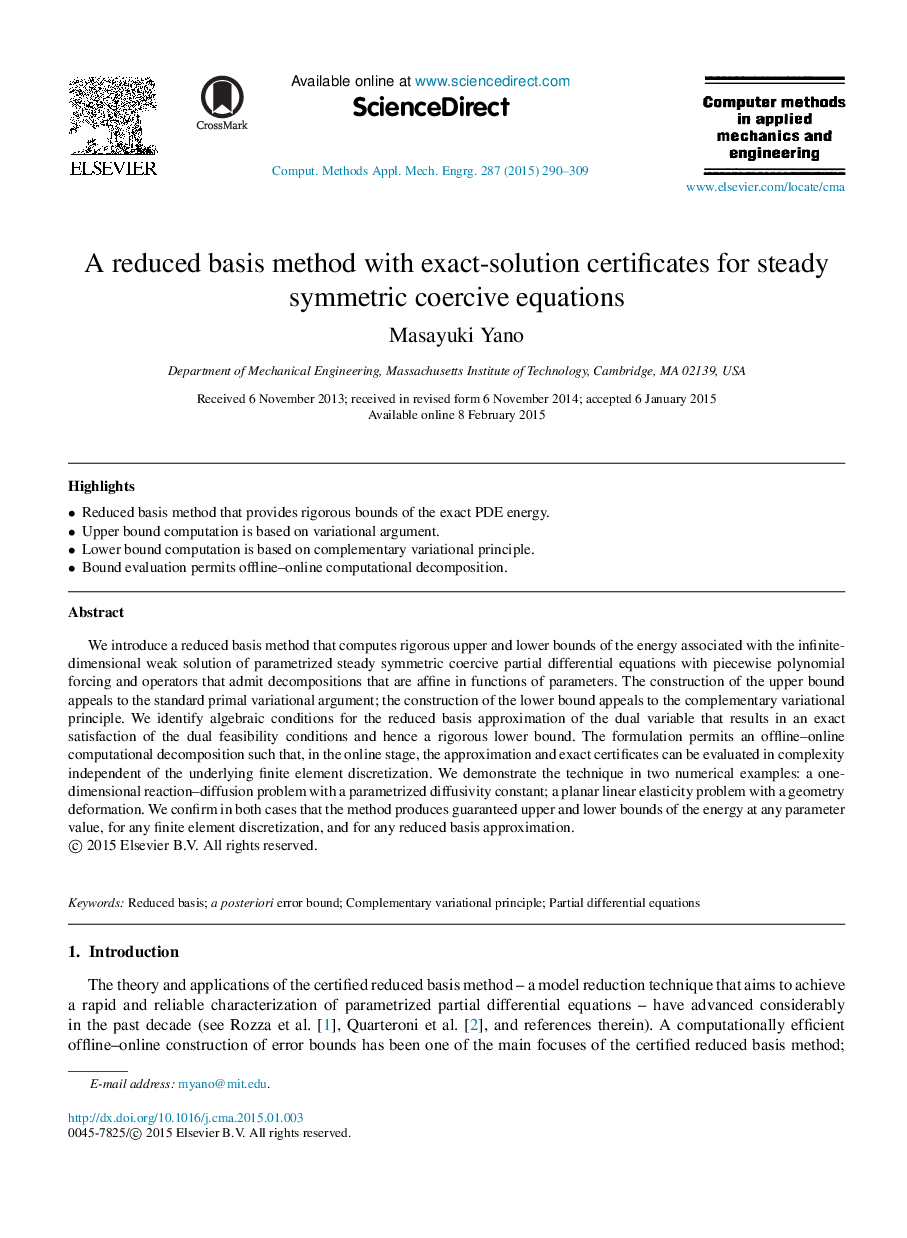| Article ID | Journal | Published Year | Pages | File Type |
|---|---|---|---|---|
| 498126 | Computer Methods in Applied Mechanics and Engineering | 2015 | 20 Pages |
•Reduced basis method that provides rigorous bounds of the exact PDE energy.•Upper bound computation is based on variational argument.•Lower bound computation is based on complementary variational principle.•Bound evaluation permits offline–online computational decomposition.
We introduce a reduced basis method that computes rigorous upper and lower bounds of the energy associated with the infinite-dimensional weak solution of parametrized steady symmetric coercive partial differential equations with piecewise polynomial forcing and operators that admit decompositions that are affine in functions of parameters. The construction of the upper bound appeals to the standard primal variational argument; the construction of the lower bound appeals to the complementary variational principle. We identify algebraic conditions for the reduced basis approximation of the dual variable that results in an exact satisfaction of the dual feasibility conditions and hence a rigorous lower bound. The formulation permits an offline–online computational decomposition such that, in the online stage, the approximation and exact certificates can be evaluated in complexity independent of the underlying finite element discretization. We demonstrate the technique in two numerical examples: a one-dimensional reaction–diffusion problem with a parametrized diffusivity constant; a planar linear elasticity problem with a geometry deformation. We confirm in both cases that the method produces guaranteed upper and lower bounds of the energy at any parameter value, for any finite element discretization, and for any reduced basis approximation.
